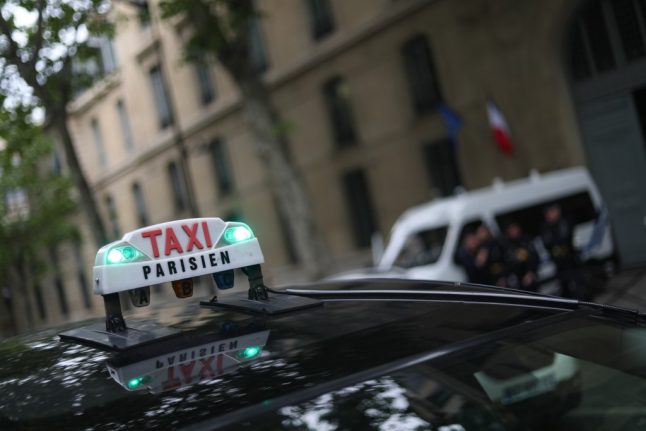People taking a taxi in Paris – particularly to and from the airports – are being warned to watch out for scam artists who are taking advantage of the scarcity of transport to charge exorbitant fees.
Taxis to and from both Paris airports can only charge a flat fee and despite what some operators are claiming, the strike does not change that.
READ ALSO The French taxi rates you can expect to pay in 2019
The fees are:
- Paris Charles de Gaulle to Paris right bank €50
- Paris Charles de Gaulle to Paris left bank €55
- Paris Orly to Paris right bank €35
- Paris Orly to Paris left bank €35
Ride hailing apps like Uber can vary their prices based on demand, so at peak times during the strikes prices have rocketed.
But the official Paris taxis must stick to the set rate.
However that hasn't stopped the rip off merchants, with tourists reporting being charged hundreds of euros for a fare.

Transport from both Charles de Gaulle and Orly airports into Paris is badly disrupted, with the RER train link running a limited service during rush hour only, with some extremely overcrowded services.
As many people opt for taxis instead passengers have reported hour-long queues for official Paris taxis.
This is where many unlicensed taxi drivers are operating, taking advantage of tired or confused passengers and offering them a quicker ride, only to then charge extortionate amounts.
The Local has been contacted by a reader who related that her cousin had been charged €150 to get from Charles de Gaulle airport to the 7th arrondissement – falsely telling her that fixed rates do not apply during the strikes.
French newspaper Le Parisien also highlighted several tales of rip off drivers, including that of a Portugese tourist who agreed to pay €80 for a trip to the airport, but upon arrival was told the fare had gone up to €135 because of heavy traffic caused by the strike.
But there have also been reports in the French media of official Paris taxi drivers trying to increase charges, and telling people that because of the heavy traffic in the city caused by the strikes they will have to put the meter on for trips to the airport, rather than charge the flat fare.
Paris taxi company G7 has confirmed that the fixed rate to the airports still applies during the strike.
A company spokesman told Le Parisien: “Any driver who does not comply with these rates would be placed in an irregular situation with regard to the rules.”
Paris taxi drivers have unfortunately earned themselves something of a reputation as rip-off merchants over the years, with tales such as the Thai tourists who were charged €247 to get from Charles de Gaulle airport into the city, although in the main the culprits are unofficial and unlicensed drivers who prey on tourists.
Anyone taking a taxi from the airport is advised to only use official taxi drivers from the airport taxi rank – however long the queue.
Faux taxis et prix exorbitants : quand grève rime avec arnaque sur la route >> https://t.co/A9tkqv6KDE pic.twitter.com/SZDYD2qKJR
— Le Parisien Infog (@LeParisienInfog) December 9, 2019
An official Paris taxi will have a sign on the roof saying 'taxi Parsien', a number on the car, a list inside the taxi of fares and regulations and a meter. They should also all take card payments, although occasionally drivers who prefer cash will tell you that their meter is broken.
Taxi drivers are also not permitted to solicit for custom, so if anyone approaches you and offers taxi services, they are almost certainly an unlicensed driver.
During the strike airport buses are still running, although as they are extremely busy we would strongly advise booking in advance, which can be done on the Paris Airport website here.
For non airport trips, there are also set rates for Paris taxis, which vary depending on the time and day.



 Please whitelist us to continue reading.
Please whitelist us to continue reading.
The taxi drivers are right. One told me of 2.5 hours to the airport, one way, and the French customer didn’t even give her a tip. The fixed rate should be flexible during this time of decreased customers and increased costs – the fixed taxi rate is not found in the Bible.